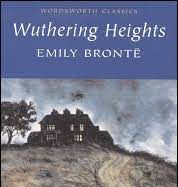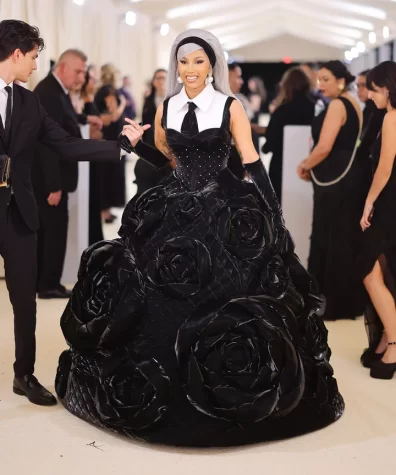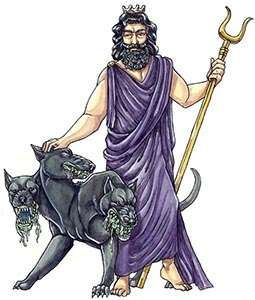Dismal Heights: How Vengeance Ruins Everything…

The expression “Revenge is a dish best served cold” is a phrase used to explain how a devised plan of attack is better than that of snap judgements made in a heated rage. In the novel Wuthering Heights by Emily Bronte, we are introduced to an early 1800’s Yorkshire tragedy that plays into the lives of two lovers Catherine and Heathcliff, a love that shows how repeated injustice can turn an infatuation into an influx of emotions that consume your personal self being. The repeated notion that revenge can be a futile source of relief is found amply placed throughout the novel and is a driving factor as to why the development of the characters is stronger in those who are affected by this need for vengeance.
In the beginning, we are introduced to the intuitive Mr. Lockwood, a young tenant living at Thrushcross Grange, a manor upon the lands of the infamous Wuthering Heights. The young tenant finds himself in a meeting with the landlord of his housing complex, an old disturbed man by the name of Heathcliff. The encounter between the two are less than friendly and gives the reader an insight to the old man and his character. Heathcliff is a cold soul who regards not in the slightest to human life and the harm done to others; he makes error in logic and fails in moral challenges all the while not seeking a true embrace of love or anything that would make him feel better within life (Pasachoff 90). After further interaction between the two, Mr. Lockwood plans to return to the manor the following day. When he journeys back to the ominous lands; he is yet again met with an experience less than pleasurable, leaving him unable to return to the Grange for that night. The reader benefits from these personal exchanges; with Mr. Lockwood’s inability to leave he will reside in a room within the Heights. Later on, in the night after the tenant sets off to his designated room; his curiosity leads to the exploration into the inhabitance of the room he finds himself within. This inquisitiveness leads to the discovery of the soul of, “Catherine Earnshaw . . . Catherine Heathcliff . . . Catherine Linton. . . as vivid as spectres—the air swarmed with Catherine’s…” (Bronte 25). This supernatural experience is to explain to the reader that Heathcliff is haunted and that the spirit is to be symbolic of a greater presence. The lifeless soul of Catherine herself is to be a message to show visibly how Heathcliff is haunted by his past, something far more than just a singular being but an entire selection of past mistakes that allows him to associate Catherine, his dead lover, as a symbol of his life before he was just the man living at the Heights. Beyond this ‘incident’, Mr. Lockwood gets to gain insight upon the soul he was introduced to. Catherine Earnshaw, what would be the only friend to the young Heathcliff when he was brought to America is the ghost of his past. The elements relating to the supernatural occurring within the early exposition of the novel build up the plot development and allow the reader to infer about the mistakes that led to the mistreatment of Heathcliff and his one and only Catherine.
The Earnshaw’s, a middle-class family was the reason for the upbringing of the young Heathcliff. Mr. Earnshaw, the father of two young children Hindley and Catherine. Brought to the Heights one day an orphan, dark in skin, the epitome of the oppressed during the time period. The children took a disfavor to the young boy and looked at him like what the common folk viewed people of color during the 19th century and that was property. The injustice of the time is one of the many things that will repeatedly degrade the poor boy and will be a leading factor into the villain arc created in the future of the plot. The following days after his arrival to the Heights he befriends the young Catherine and the two become inseparable. This is not as easily found from the other sibling of the Earnshaw estate, Hindley. Throughout his childhood years Hindley finds every opportunity to put Heathcliff below him and establish a true barrier between how Hindley is the true son to Mr. Earnshaw and that Heathcliff would be nothing but just a servant to the family. Once Hindley sets off to college, Heathcliff finds himself within a respectable nurturing relationship between himself and his proclaimed father Mr. Earnshaw. While the eldest son is away Heathcliff finds it within himself to accept a role as the son to Mr. Earnshaw. This build of trust leads to the favoritism and guidance that will create many of Heathcliff’s early on personality traits. This would unfortunately end and Mr. Earnshaw would pass leaving the estate of the Heights to Hindley, in a time of desperation for the collective children of the Earnshaw family Hindley returns in a rage that is fueled by the anger of being replaced by Heathcliff in the eyes of his own father. What could’ve been two brothers by non-biological means working upon the same ideal of living up to their fathers’ standards turned into two enemies sworn to attack one another by social hegemony. The usage of the Earnshaw’s development and imbalance of power is to show the declining reign of the middle class and that the destruction of the family is within the affairs between the two brothers (London 3).
Upon Hindley’s return, he uses his inheritance of the Heights to sentence Heathcliff to a life of servitude on the lands he once grew up on. This sets upon a withdrawal for him; he believes that he is nothing but what society sets upon him. The author allows Hindley to do this as a way to explain how social injustice can be a defining moment in characterization. Although Catherine and Heathcliff find ways to continue their love for one another. Ultimately, it ends at the extent of a new man, Edgar Linton. Within Wuthering Heights the narrative that the story explains love and the balance of beauty is proven to be wrong; Catherine leaves Heathcliff not because she fell out of love with the boy she grew into adulthood with, but that he could not offer her the social stability that the Linton’s easily shared upon her (Como 2). These events send Heathcliff into a downward spiral, he breaks away from his social life and leaves. On his return; a mere three years later. Everything has changed, and while he expected his life to be waiting for him; he was shocked to find that his first love was now married to Edgar and he would not be able to rekindle the flame between him and Catherine. What was a kind young man set upon the dreams of turning his fate as a colored orphan was now the dedicated wise adult set to destroy all who assisted in the disregard of his human nature. Heathcliff’s entire being was consumed with the need for vengeance, planning to harm the families in ways that would affect the linage for years to come. Heathcliff’s motivation throughout Wuthering Heights is within the obsession of taking revenge on Edgar Linton and Hindley Earnshaw, as well as their descendants. The Marxist theory gives way to a perspective on the way in which he plans to seek revenge on his enemies; through social and economic hegemony. Heathcliff’s method of taking revenge on his enemies is to degrade them socially and dominate them economically (Birmingham 1). The success he has with this affects the entire narrative of the novel and not only affects their lives but many lives that he cared about such as Catherine and Isabella. After ruining the reputation of Hindley Earnshaw, Heathcliff finds himself inheriting Wuthering Heights but for him, that wasn’t enough. His revenge wasn’t yet satisfied and prepared to dominate the livelihood of the Linton’s by marrying within the lengths. Isabella Linton his future wife settles this dispute by entering himself within the bloodline of the Linton family. Isabella is pregnant, and all the while Catherine and Edgar plan to introduce their child into the world as tragedy strikes leaving Catherine dead during the birth of her daughter (Bronte 162) Heathcliff sulks, leaving himself feeling sorry for all the things he has done. The wrongful display of power he used to ruin everyone. He no longer feels anything as he has lost the one true thing that meant the most to him, Catherine. Isabella leaves, birthing his son later on unannounced to him, Edgar later dies, and all the pieces of the puzzle intertwine without Heathcliff’s doing. His vengeance is complete but at the extent of his own self being.
Now the heir of both Wuthering Heights and Thrushcross Grange, Heathcliff has successfully ruined the social standing for both the descendants of the Earnshaw’s and Linton’s. Living at the Heights, we arrive back at where we began. An old disturbed man, living with his servants and the daughter of his first love. Heathcliff has now left himself with nothing but regret and sorrow. Vengeance, a term used to describe retribution is nothing short of the way to explain how Heathcliff turned his life into hell. Wuthering Heights is more than just a love tragedy, but a visual display of the wrongdoings of social standings and how taking up for your injustice just might be your own downfall.











